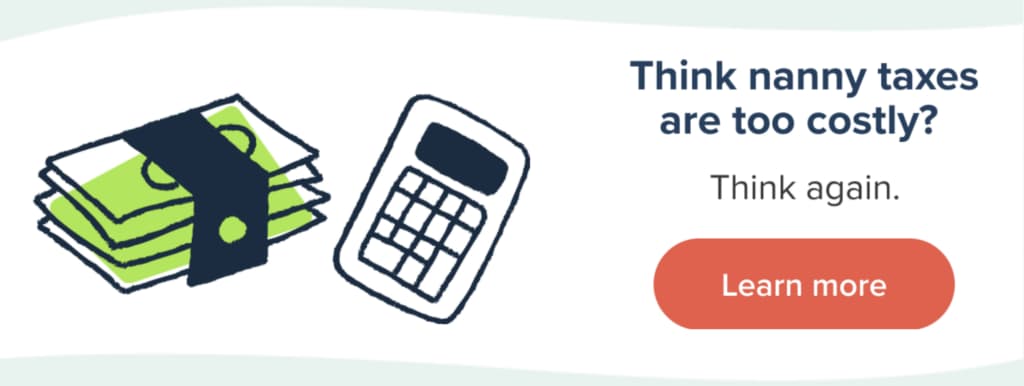The Families First Act and CARES Act offer several benefits to both families and caregivers who may be affected by the coronavirus. With the tax filing deadline extended to July 15th, you have time to put your caregiver on the books so you both can access the following:
- Paid sick leave and paid family leave for nannies and caregivers.
- Tax credits for families that provide paid leave for their employees.
- Expanded unemployment benefits for caregivers that lose their job.
- Stimulus check payments to individuals to help make ends meet.
Below is a more detailed look at the items that are relevant to household employers in the Families First Act and the CARES Act:
1. Paid sick leave and paid family leave for nannies and caregivers
Under the Families First Act, if your nanny contracts the coronavirus, they can receive up to 80 hours of paid sick leave while they recover. Your nanny may also use paid sick leave if they can’t work because one of their family members becomes ill.
The Families First Act also allows your nanny to take up to 12 weeks of expanded FMLA (paid family leave) if they cannot work because their child’s school or daycare is closed. The first 2 weeks of FMLA can be unpaid, but the remaining 10 weeks are paid at 2/3rds of your nanny’s regular hourly rate.
2. Tax credits for families that provide paid leave for their employees
To help offset the unexpected cost of paying your nanny or caregiver while they’re out of work, the Families First Act sets up tax credits you can take advantage of if you’re paying on the books.
- Up to $5,110 in tax credits for paid sick leave if your caregiver is sick, or up to $2,000 if they need to take care of a family member.
- Up to $10,000 in tax credits for paid family leave if your caregiver cannot work because their child’s school or daycare is closed due to the COVID-19 virus.
These tax credits are reimbursable, which means if you pay more in sick time or paid family leave benefits than you owe in Social Security and Medicare taxes, the IRS will refund you the difference.
3. Expanded unemployment insurance benefits for caregivers that lose their job
Both the CARES Act and the Families First Act provide additional unemployment benefits to your nanny or caregiver if they are laid off due to the coronavirus. Assuming the state makes them eligible for benefits, they can receive an extra $600 per week, on top of what the state normally provides, for up to 4 months. Additionally, the amount of time your employee can receive unemployment benefits has increased by 13 weeks.
If you’re paying under the table, the state will not award benefits to your caregiver because they will have no record of you contributing tax payments to the unemployment insurance pool.
4. Stimulus check payments made to individuals to help make ends meet
The CARES Act may give your nanny or caregiver a one-time payment of up to $1,200 ($2,400 if they’re married), plus an additional $500 for each child they have. The requirements to receive this payment are that your employee must have a Social Security Number and have filed a 2018 or 2019 tax return. If your nanny or caregiver was paid under the table and never received a W-2, they may not have filed a tax return and would not be eligible for this financial benefit.
Let HomePay help get your caregiver on the books
We regularly work with families that have just learned of their tax and payroll responsibilities and want to pay their caregiver legally. Because our service is comprehensive, we will quickly and efficiently file all outstanding household employment tax returns on your behalf and manage any notices from the state or the IRS that you may receive. And because the IRS has extended the 2019 tax filing deadline into July, you have time to let us do all this work for you. We’ll ensure no mistakes are made and that you and your caregiver receive the tax credits and benefits you both deserve.

